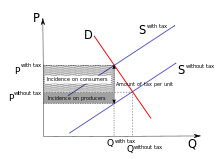Perhaps the first issue that arrives with any discussion on Smart Grid is that it is poorly understood. It must be carefully distinguished from energy management for which it is no substitute.
This is a characteristic it shares with snake oil and many a "panacea for all ills"
.
 However the article that provides this image does rather a good job -the definition is tightly defined but broad...
However the article that provides this image does rather a good job -the definition is tightly defined but broad...Smart Grid is a new architecture for enabling the two-way flow of electricity and information
http://technorati.com/technology/article/smart-grid-technology-major-topic-at/#ixzz1iIlNN0ox
This is important because if you cannot tie something down in terms of objectives it is extremely hard to show whether it is doing its job or not.
I think it is possible to tie this down a little further. The idea behind the Smart Grid is that if all parties between Generator and consumer are aware of volume and pricing implications of demand and supply, then work that can be re-scheduled to fit a time when supply is more flexible ("price-elastic" in micro-economic terms) - the costs will not be forced up so much by additional demand, as at peak times when supply is highly inflexible - near peak production and market supply is therefore price-inelastic
For the theory : http://en.wikipedia.org/wiki/Price_elasticity_of_demand
So in summary the Smart Grid comprises technologies that increase the elesticity of markets by enabling rapid information regards levels of supply and demand. It is a concept that increases the efficiency of the market.
 Suppliers will be able to schedule more efficient supply as loads patterns become smoother and more predictable, because demand is driven automatically by devices "intelligent" enough to schedule activity to map onto times of low demand and more flexible supply.
Suppliers will be able to schedule more efficient supply as loads patterns become smoother and more predictable, because demand is driven automatically by devices "intelligent" enough to schedule activity to map onto times of low demand and more flexible supply.So a hot water heater can operate overnight at times when demand is low and thus save the consumer money while freeing up capacity during the day.
However the idea is NOT completely new and does not equate to energy management
In the title, I said that the Smart Grid is no substitute for energy management. Certainly it is a very important and established part of distribution technologies and as such is a buzz word that is being used to justify much of the infrastructure investment that is overdue in any case, and, in that very niche definition it manages energy. However, what does it not do ?
We can define energy management as ensuring that energy is consumed to meet needs.
However, what constitutes need - The most basic function of heating a building must consider occupancy times, the age of occupants (elderly people need more warmth as do the young or sick), activity levels - you need less heat when you are playing a game of rackets than when watching television, the weather outside and naturally alternatives.
These aspects are not considered and this information is not conveyed by the "Smart" Grid and as such the home of energy management must remain local - we need local energy intelligence in a building - or as we refer to it "Building Energy Intelligence"
